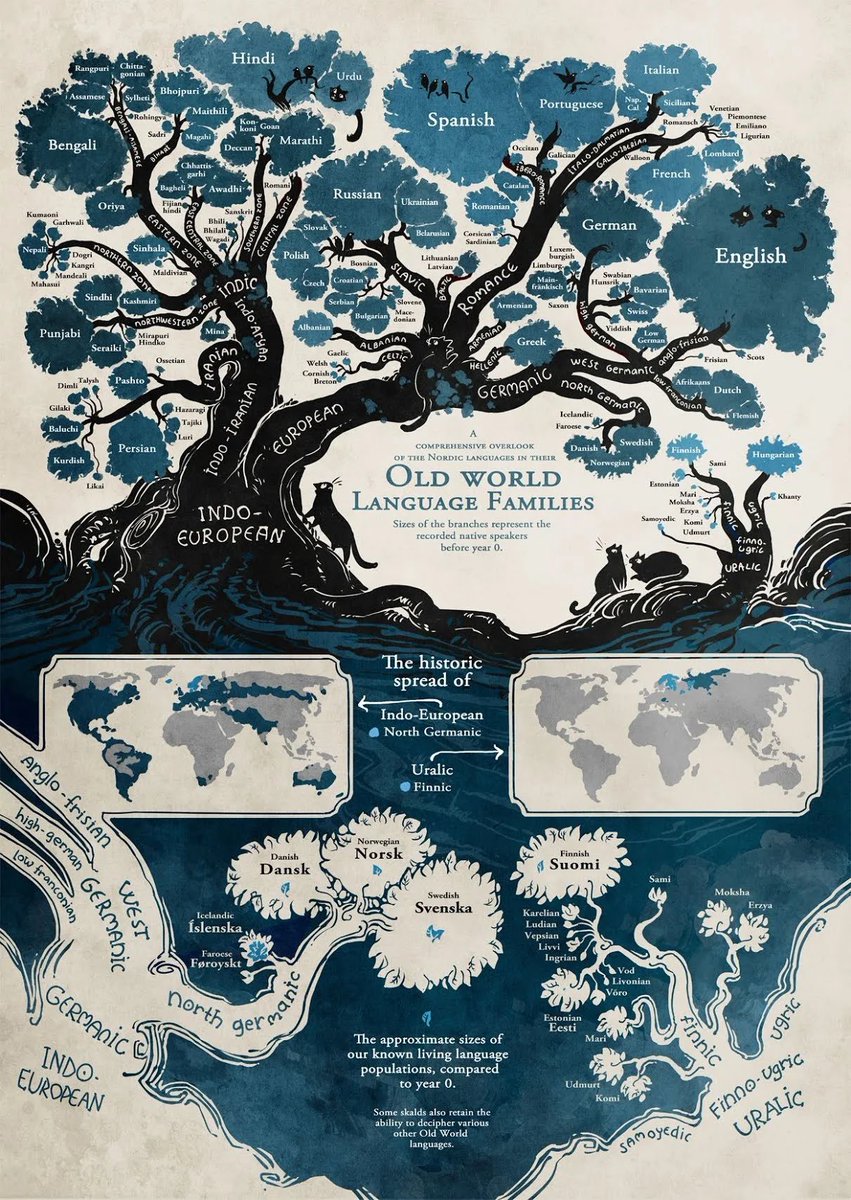“Our language”... about that:
English is a West Germanic language of the Indo-European family. It first came to these islands through Angles, Saxons and Jutes—migrants from the continent who brought their language with them. Then Old Norse was added in when the vikings arrived. https://twitter.com/juliahb1/status/1325923084239577090
English is a West Germanic language of the Indo-European family. It first came to these islands through Angles, Saxons and Jutes—migrants from the continent who brought their language with them. Then Old Norse was added in when the vikings arrived. https://twitter.com/juliahb1/status/1325923084239577090
The word ‘arm’ is Anglo-Saxon, for example, while ‘leg’ is Old Norse.
Later, the Norman conquest added French influences and marks the beginning of the transformation to Chaucer’s Middle English on to the English we know today (including things like the Great Vowel shift etc).
Later, the Norman conquest added French influences and marks the beginning of the transformation to Chaucer’s Middle English on to the English we know today (including things like the Great Vowel shift etc).
British migrants brought English to other parts of the world, true. But let’s not forget that they regularly imposed it on indigenous peoples as a means of control. In what had just become Canada, for example, indigenous children were placed into so-called residential schools ...
... to “kill the Indian in the child”. Making them learn English was part of that attempt to force assimilation. Think that’s just history in the distant past? No, it’s not:
To understand the full impact, read the reports on the history of Canada’s residential schools by the Truth and Reconciliation Commission of Canada. Volume 1 here: http://www.trc.ca/assets/pdf/Volume_1_History_Part_1_English_Web.pdf
And generally, then there’s this: https://www.theguardian.com/books/2011/oct/19/end-myths-britains-imperial-past
Many Britons, there can be no doubt, achieved great things. But so did others. English has become a global lingua franca partly because of its roots that go back to centuries of migration. Look at this fabulous visualisation to understand. More here: https://www.vox.com/2015/3/3/8053521/25-maps-that-explain-english
In any case: the UK is a small island nation in a globalised world with much bigger players. And in such a world, but really in any world, exceptionalist narratives won’t help—it’s impossible to reclaim a past that never existed in the first place. /end

 Read on Twitter
Read on Twitter


